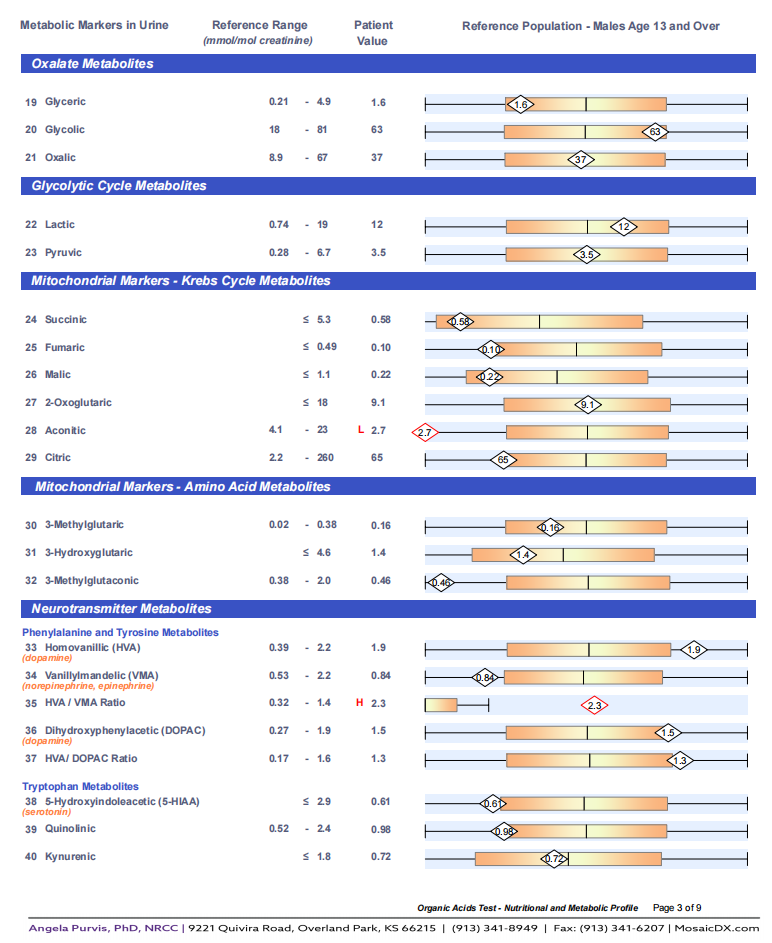Services
“The doctor of the future will give no medicine, but will interest his patient in the care of the human frame, in diet and in the cause and prevention of disease.” Thomas Edison
Common reasons why people visit us
My nutrition plans are bespoke – personal to you and your health situation.
Many people struggle with blood sugar issues and perhaps even diabetes (Type 2) or pre-diabetes. Other problems like high cholesterol, high blood pressure and extra weight are all pointing to a struggling metabolism.
I help people optimise their metabolism through a bespoke plan and weekly chats.
Asthma, skin conditions like eczema and allergies as hayfever are generally linked to a gut imbalance or histamine intolerance which stimulates an over reactive immune system.
Finding and working on the root cause, for example gut health, can dramatically reduce these symptoms and give you peace of mind and confidence.
Over weight or underweight, wanting to reach a short term goal for a special occasion or struggling with weight issues your whole life, we all face different challenges. The important thing is to reach out for help and take the first step. And never give up.
Rheumatoid arthritis, Multiple sclerosis and Lupus are just 3 of many autoimmune conditions that sadly affect 1 in 10 people and children in UK. These are serious and complex health challenges but I am here to help you get as healthy as possible.
As these are complex and difficult conditions to tackle, I always use functional testing such as Comprehensive Adrenal Test, GI360 Complete, Organic Acids Test. These give us specific data to help point to the underlying issues so that I can create a Bespoke plan for each of my clients .

Functional testing

Functional testing takes out the guessing by giving us a clearer picture of how your body is functioning, showing us if a certain underlying cause is present or not.
Please note that I do not diagnose a disease, however testing is a useful tool to rule out potential disease and provide some markers that help us to put together a bespoke plan and also offers a baseline measure to understand progress and what other interventions are necessary.
These tests are carried out by professional, industry recognised laboratories in the UK and use saliva, blood, urine or stool samples. Tests include:
Description
The Comprehensive Adrenal Stress with CAR assesses the HPA axis/adrenal function and the cortisol awakening response (CAR) along with salivary secretory IgA (sIgA).
CAR is the expected maximum rise in cortisol levels observed at 30 minutes post awakening, approximately 35-60% above the waking value, followed by an expected decline sixty minutes after waking. Monitoring the CAR is critical to understand the HPA axis’ physiologic responsiveness and is a key indicator of HPA axis adaptability and reactivity.
SIgA is the predominant antibody found on mucosal membranes and represents the body’s first line of defence. SigA levels change in response to stress. Elevated levels of sIgA are associated with an upregulated, active immune or inflammatory response and may be reflective of aute psychological and/or physical stressors. Decreased levels of sIgA are commonly seen in individuals with low immune system functioning, and are a sign of chronic, ongoing psychological and/or physical stress (HPA axis dysfunction) to the body which has depleted sIgA reserves.
This test includes 6 cortisol levels collected over the course of the day (on waking, 30 minutes post waking, 60 minutes post waking, at noon, in the evening and before bed), plus DHEA and salivary secretory IgA.
Methodology
Enzyme Immunoassay Antibody (EIA)
When should I use
Feeling stressed
Fatigue
Insomnia
Nervousness/Irritability
Salt/Sugar cravings
Dizzy spells
Headaches
Decreased stamina
Burn out
Chronic disease
Anxiety/depression
A lower CAR is often seen in individuals with:
Psychosocial burnout
Chronic fatigue
PTSD
Seasonal affective disorder
Sleep apnea
Short sleep cycles
Chronic inflammation
Adrenal insufficiency
Lack of morning sunlight exposure
Hippocampal damage or atrophy
Factors associated with an elevated CAR include:
Ongoing job-related and perceived stress
Immediate access to light upon awakening
Depression
Ovulation phase of the menstrual cycle
Sleep issues
Older age
Other Details
Another option is Diurnal Cortisol CAR Profile (code LRX03) which examines the cortisol awakening response but without DHEA and sIgA, so ideal for pre-pubescent children.
View Details
Description
GI360 Complete is an advanced, innovative, comprehensive and clinically-applicable stool profile, utilising multiplex PCR molecular technology, coupled with growth-based culture and ID by MALDI-TOF (>1200 bacteria; >200 yeasts can be identified), sensitive biochemical assays and microscopy to detect and assess the status of pathogens, viruses, parasites and bacteria that may be contributing to acute or chronic gastrointestinal symptoms and disease. GI360 Complete includes a broad range of stool chemistry markers to assess digestion/absorption, inflammation, immunology, short chain fatty acids and intestinal health markers including beta-glucuronidase.
Methodology
The test is broken down into sections:
Commensal bacteria and GI Pathogens measured by multiplex PCR.
Gold standard microscopy of parasites, worms and yeasts.
Microscopy of red and white blood cells, muscle fibres, vegetable fibres, pollen and Charcot-Leyden Crystals.
Culturing of commensal and pathogenic bacteria
Macroscopic assessment of stool colour, consistency and presence/ absence of mucus.
Elastase and Calprotectin – BÜHLMANN fCAL® & fPELA® turbo assays
Lactoferrin, Lysozyme, sIgA – Elisa
Carbohydrates – Colormetric
Fat Stain – Sudan IV
SCFA – Gas Chromatography
Beta Glucuronidase – Quantitative endpoint enzymatic (RUO)
Occult Blood – Guaiac
Stool pH – ISE
When should I use
Our most comprehensive stool test, the GI360 can help to differentiate inflammation associated with inflammatory bowel disease (IBD) from that noted in irritable bowel syndrome (IBS). The test can be used to identify underlying factors in digestive symptoms. The dysbiosis index, based on PCR assessment of commensal bacteria, was devised using the ROME criteria for IBS and bacteria associated with IBD. This profile is indicated for gastrointestinal symptoms, autoimmune disease, joint pain, IBD, IBS, inflammation, food sensitivities, nutritional deficiencies and skin conditions.
Description
Organic acid test includes 76 urinary metabolites that provide a comprehensive snapshot of a patient’s overall health as the initial screening test and is useful for discovering underlying causes for chronic illness.
Includes biomarkers for:
• Intestinal Microbial Overgrowth
• Oxalate Metabolites
• Glycolytic Cycle Metabolites
• Mitochondrial Markers (Kreb Cycle)
• Neurotransmitter Metabolites
• Folate Metabolism
• Ketone and Fatty Acid Oxidation
• Nutritional Markers
• Indicators of Detoxification
• Amino Acid Metabolites
Organic acids are chemical compounds excreted in the urine that are products of metabolism. Metabolism is the sum of chemical reactions in living beings by which the body builds new molecules and breaks down molecules to eliminate waste products and produce energy.
Organic acids are most commonly analysed in urine because they are not extensively reabsorbed in the kidney tubules after glomerular filtration. Thus, organic acids in urine are often present at 100 times their concentration in the blood serum and thus are more readily detected in urine. This is why organic acids are rarely tested in blood or serum.
Methodology
Organic acids are measured by a combination of gas or liquid chromatography linked with mass spectrometry.
When should I use
The Mosaic Diagnostics (GPL) Organic Acids Test (OAT) assess 10 key areas and includes 76 organic acids to provide a comprehensive metabolic snapshot of a patient’s overall health. Organic Acids Test is an essential profile for anyone seeking additional information related to underlying gut derived bacterial and fungal toxins, as well as evaluating for less known metabolic imbalances such as mitochondrial function. It is not a test limited to just a few conditions, but instead can be done on anyone dealing with a complicated and chronic health problem.
• GI conditions – IBS, Dysbiosis/Yeast
• Chronic Fatigue/ Fibromyalgia
• Autism/AD(H) D/ Asperger Syndrome
• Mental health
• Low energy
• Depression/ Stress/Anxiety
• Eating disorders
• Cognitive decline
• Nutrient deficiencies
• Headaches/Migraines
• Joint/muscle pain
• Brain Fog
• Skin issues
Thyroid Complete includes TSH, T4, T3, fT4, fT3, TPO Ab, TG Ab, T-uptake and rT3. It is also useful for monitoring thyroid function.
Thyroid-Stimulating Hormone (TSH) is produced by the anterior pituitary to control the thyroid gland’s production of thyroxine (T4), to store T4, and to release it into the bloodstream. TSH serves as a key test in thyroid diagnostics and is a very sensitive and specific parameter for assessing thyroid function.
Thyroxine (T4) is the major hormone secreted by the thyroid gland. Triiodothyronine (T3) is the most active thyroid hormone, primarily produced from the conversion of T4 in peripheral tissue.
Unbound T4 and T3, Free thyroxine (fT4) and Free Triiodothyronine (fT3) respectively, reflect the bioactive portion of thyroid hormones and can help identify both overt hyper- and hypothyroidism and more subtle subclinical thyroid dysfunction.
Thyroid antibody levels help assess autoimmune response, either to thyroglobulin (TG ab or anti-TG) or thyroid peroxidase (TPO Ab or anti-TPO) which may affect production of thyroid hormones T4 and T3 and may be raised in response to trauma, inflammation, thyroid degeneration and in either Hashimoto’s disease or Graves’ disease.
Reverse T3 is the amount of T3 in the body, not bound to protein but also not active which can increase when peripheral conversion of T4 to active T3 is impaired, for example due to nutrient shortages, heavy metal exposure, adrenal stress, enzyme deficiencies and due to other chronic illnesses.
The performance of a T uptake, or TBC assay, provides a measure of the available thyroxine binding sites.
Methodology
Medical Diagnosis is a private clinical pathology laboratory, ISO 15189 UKAS Standard accredited and regulated by the CareQuality Commission (CQC).Standard specifications/Equipment/Techniques used:
Documented in-house methods and manufacturer’s instructions for Chemiluminescence immunoassay using the Snibe Maglumi 2000 plus documented in SOP WI-29 Maglumi 2000 Plus chemiluminescence immunoassay (CLIA).
When should I use
Thyroid function is essential for the primary regulation of all the body’s metabolic processes. Symptoms can include:Fatigue
Depression
Feeling cold
Constipation
Poor skin
PMS, dysmenorrhoea
Poor fertility
Weight gain or inability to lose weight
Fluid retention
Anxiety and mood disorders
Decreased memory, concentration, or brain fog
Muscle and joint pain
Low libido
Hyperthyroid symptoms include:
Nervousness
Anxiety
Mood swings and irritability
Hyperactivity or feeling tired all the time
Palpitations
Sensitivity to heat
Description
DUTCH Plus provides a comprehensive assessment of 35 different sex and adrenal hormones, including oestrogen, progesterone, testosterone, DHEA and cortisol along with their metabolites. It also looks at the overall diurnal pattern of free cortisol and cortisone along with a more in-depth assessment of the Cortisol Awakening Response. The oxidative stress marker 8-OHdG, melatonin and nine organic acids including markers for vitamin B12 (methylmalonate), vitamin B6 (kynurenate and xanthurenate), biotin (β-hydroxyisovalerate), glutathione (pyroglutamate), dopamine (homovanillate), norepinephrine/epinephrine (vanilmandelate), neuroinflammation (quinolinate) and tryptophan putrefaction (indican) are also included.The Cortisol Awakening Response
When we wake in the morning and open our eyes, cortisol levels naturally begin to rise by an average of between 50-160% in the first 30 minutes after waking. By 60 minutes after waking, cortisol levels have peaked and begin to decline. Measuring this rise of cortisol levels at waking, known as the Cortisol Awakening Response, can be used as a “mini stress test”. Research shows that the size of this increase correlates with HPA-axis function, even if the sample measurements are all within range.
Methodology
Cortisol, cortisone, 8-OHdG, melatonin (6-OHMS), organic acid tests and metabolites related to cortisol are tested by Liquid Chromatography with tandem mass spectrometry (LC-MS/MS). The remaining hormones are tested by Gas Chromatography-Tandem Mass Spectrometry (GC-MS/MS).When should I use
DUTCH Plus can help identify the root causes of sex hormone and adrenal imbalances in men and women and includes assessment of the Cortisol Awakening Response (CAR) to give further insight to the HPA axis.Measuring the body’s response to the stress of waking allows us to test the HPA axis independently of the patient’s free cortisol levels throughout the day.
DUTCH Plus is a great test to assess your patients’ sex and adrenal hormones. It is easy for them to collect the samples due to the unique combination of methodologies (dried urine and saliva) and provides more detail than traditional serum or saliva testing on their own. The inclusion of relevant nutritional, detoxification and neurotransmitter organic acids, melatonin and oxidative stress markers allows a thorough and comprehensive insight to guide your therapeutic dietary, supplemental and lifestyle recommendations.
Other Details
DUTCH Plus provides a unique assessment of sex and adrenal hormones by assessing both dried urine to include extensive metabolite testing (especially for oestrogens and cortisol) AND saliva to closely assess the Cortisol Awakening Response (CAR).A true CAR assessment requires salivary samples to be collected on waking, and twice more, at 30 minutes after waking and 60 minutes after waking. These specifically timed collections are difficult and impractical with urine and traditional salivary options. The DUTCH Plus® uses specialty, FDA-approved, and patented collection devices called Salivettes™. Salivette™ are specifically made for testing cortisol when timing needs to be precise and are used in nearly all of the published CAR studies. The small synthetic cotton swab can be quickly saturated with saliva, providing a very fast and simple collection.
Combining salivary cortisol with the extensive urine metabolites from DUTCH measuring oestrogen and androgen metabolites, gives a fuller picture for more precise clinical assessment of hormonal imbalances and (B)HRT monitoring.
Combining both sex and adrenal assessment with relevant organic acids for nutrients, neurotransmitters and detoxification as well melatonin and 8-OHdg gives further insight as to how best support the patient.
